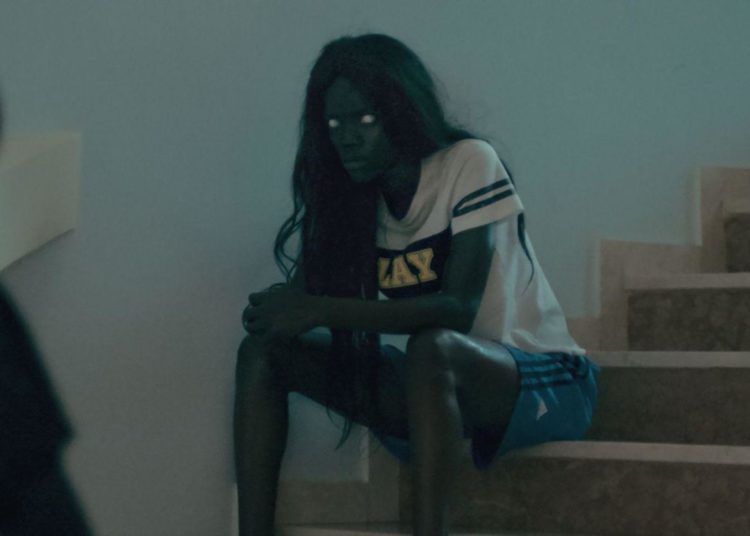This post is also available in: Français (French)
Love According to Dalva, the first feature film by French director Emmanuelle Nicot, was released in France on March 23, 2023, and has been showing in Italian cinemas since mid-May. In 2022, it was presented at the Critics’ Week at the Cannes Film Festival, where it sparked a wide debate.
It is sure to continue doing so wherever it is screened, considering it borders on reality cinema and addresses the theme of incest and pedophilia in a delicate and impactful manner.
The role of Dalva, a little girl abused by her father between the ages of 5 and 12, is played by the extraordinary Zelda Samson, who justly won last year’s Critics’ Prize for Best Performance at Cannes.
Emmanuelle Nicot chooses not to explicitly show the violence but rather explores the arduous path to awareness that leads Dalva to recognize the violence, accept the trauma, and finally start to rebuild her life.
It took the director over five years to complete this film, four of which were spent doing research on how to write her character. The movie starts with a totally black screen, with a scene that is purely sonic: the chaos of overturned chairs, slamming doors, orders shouted out, and the desperate cries of Dalva, who must be forcefully restrained while her father is being arrested. As she is then on her own, she is transferred to a foster home for teenagers.
“Influence is a major theme in the movie. I’ve been interested in this for personal reasons for several years now, and I’ve already addressed this theme in two short films. But I wanted to go further with this feature (film),” the director explained while presenting the film at Cannes last year.
“Then I put myself in a situation of immersion in an emergency shelter for adolescents in Forbach, in the east of France. I was struck by the number of children I met who had been taken from their homes because of proven abuse, and by the fact that these children continued to stand with their parents against the justice system because they considered that it had been unjust for the system to have placed them (in a home).”
Such is the case of Dalva, who believes herself to be the victim of a deaf and blind justice system that unjustly arrested her father and refused to recognize that she was following him of her own accord. But she soon makes the shocking discovery that she is indeed a victim of her father’s: a pedophile who robbed her of her childhood, kidnapped her, isolated her, and constantly forced her to move, a father who never sent her to school and who sexually abused her for several years.
Dalva is 12 years old, her thick auburn hair tied into a bun—we later learn that she has been dyeing her hair this color since she was 9, at the behest of her father. Her wardrobe consists of little dresses and lace bodysuits in dark shades, and small earrings with a dangling pearl. She has never chosen or bought a dress for herself. She doesn't know her favorite color and has never had a cell phone but knows her way around eyeliner, eye shadow, and lipstick.
“It was important for me that everything occur through the reappropriation of the body. This is in fact the main theme of the film, because Dalva goes from being an object – that of her father’s desire – to a subject,” the director explains.
The key to this self-discovery, shown through a sort of return to childhood whose lightness the director restores at times, lies in the relationships Dalva has with others: with the team at the home, and particularly with the educator Jayden, played by Alexis Manenti, to whom Dalva is entrusted and whom she tries several times to seduce (a scene inspired by a true story that Emmanuelle Nicot learned about over the course of her preparatory research).
There is also Samia, who is played by the talented Fanta Guirassy. Dalva shares her room at the home with Samia, a rebellious Black teenager whose mother is a prostitute. She will become Dalva’s first “best friend.” She also deals with the other “special” girls and boys in their community, as well as her classmates at the school she ends up going to. They all subject her to the verbal cruelty typical to that age.
Dalva runs away, rebels, hides in cupboards, refuses to eat, hits a classmate, breaks everything, injures herself, and continuously puts herself at risk to get what she wants: to see her father in prison. Jayden is always at her side: containing her, supporting her, guiding her, accompanying her. The director thus offers us a realistic and rare portrait of the work educators do in a home, a profession that is little known and seldom thought of, though it is essential for so many women and minors who are victims of violence.
It's the father, played by Jean-Luis Coulloc'h, whom Dalva’s mother left “because he was suffocating me” who ends up handing Dalva the mirror that reveals his true nature to her, no longer distorted by plagiarism and abuse.
Dalva’s pain is palpable on screen thanks to skillful use of the camera. Nicot continually places it at the little girl’s eye level, immersing the viewer into the world as she sees it: a fragmented image with distorted details that occupy her entire field of vision so as to erase context and preserve the core of the—abused—self. It is the only self she knows, her only possible identity.
Her self-recovery also entails the recovery of her relationship with her mother, whom she first attacks and rejects but later seeks out and acknowledges. Dalva stays at the home, and time passes, as evidenced by her growing hair which she had furiously cut off one of the times she ran away. In the room she until recently shared with Samia, who left to an aunt’s house, Dalva prepares for the first hearing of the trial.
The film ends in court. Those who are part of the struggle against violence against women and children know very well that a trial does not mark the end of everything but represents the beginning of a new phase that may last syears. A traumatizing process that forces the victim to relive her entire experience through the lens of a new consciousness.
But in the courtroom, the little Dalva is no longer alone: her hand is firmly placed on that of her mother.
A first version of this article was published in Italian: Dalva. Abuso e come uscirne































